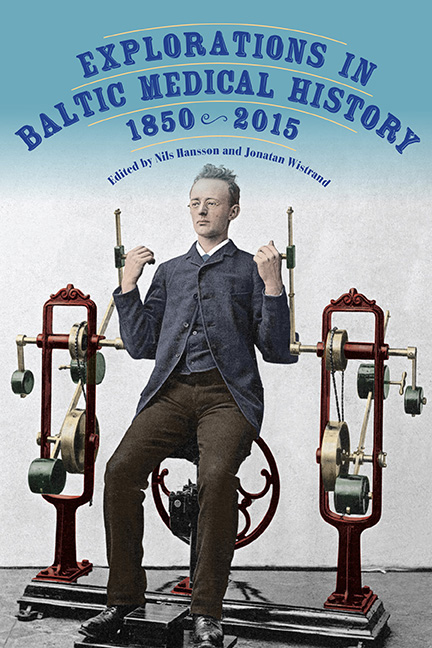4 - Smallpox in Malmö, Sweden, 1932: Disputed Knowledge of Infection, Contagion, and Vaccination in the Baltic Sea Region
Published online by Cambridge University Press: 17 April 2021
Summary
In the beginning of 1932 a small epidemic of smallpox broke out in the coastal city of Malmö in southern Sweden. Ten people were afflicted, and one died. After the first cases of smallpox appeared, the first mass vaccination of an entire Swedish city took place. Both the decision to carry out mass vaccination and its implementation became the subjects of animated discussions and mutual accusations. The vaccine from the National Bacteriological Laboratory that was used also became the focus of a deep conflict among different medical experts. They were not in agreement as to how the vaccine should be manufactured, what contents were permissible, how the contents should be tested, and what the best methods of vaccination were. After vaccination a relatively large share of the population became ill, and four died after demonstrating symptoms of problems with the central nervous system. Experts disagreed as to what significance high virulence and varying contents of the vaccine had for people's health and what could be regarded as the normal reactions to vaccination versus unexpected and undesirable complications and side effects. On one side of this disagreement stood the highest medical authority in the country and, on the other, the general public that was affected in terms of both health and economics and that wanted to know what had gone wrong. It turned out to be difficult for the medical authorities to investigate the events, as the persons bearing the responsibility were reluctant to cooperate. The events during and after the Malmö epidemic form the basis for ethical and political judgments that remain relevant to today's public health policies.
Since the turn of the nineteenth century, the question of vaccination has been characterized by a rhetoric within which medical science and rationality have been placed in opposition to what has been said to be religious superstition, irrational skepticism, and myths of vaccination critics. At the same time, knowledge about infectious diseases, vaccines, and vaccination has always been characterized by uncertainty and changeability even within the framework of medicine. Doctors and scholars from various specialties, veterinarians, and health-care administrators, as well as individual and collective representatives for the general public, have maintained rival claims to the right to interpret current knowledge on smallpox, vaccination, and public health.
- Type
- Chapter
- Information
- Explorations in Baltic Medical History, 1850–2015 , pp. 87 - 112Publisher: Boydell & BrewerPrint publication year: 2019



